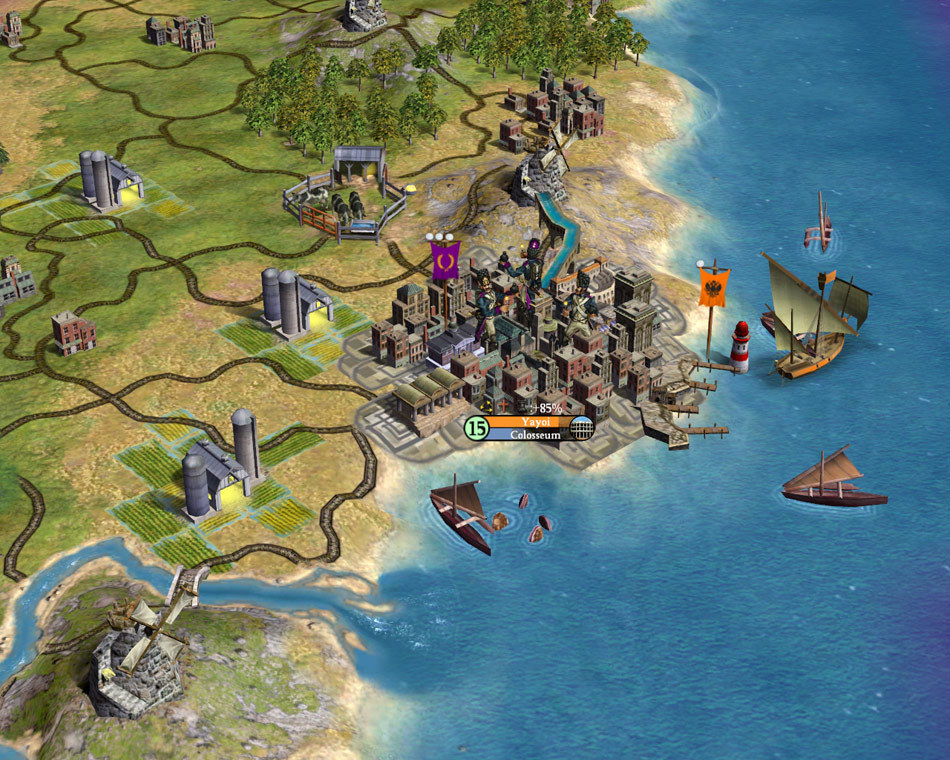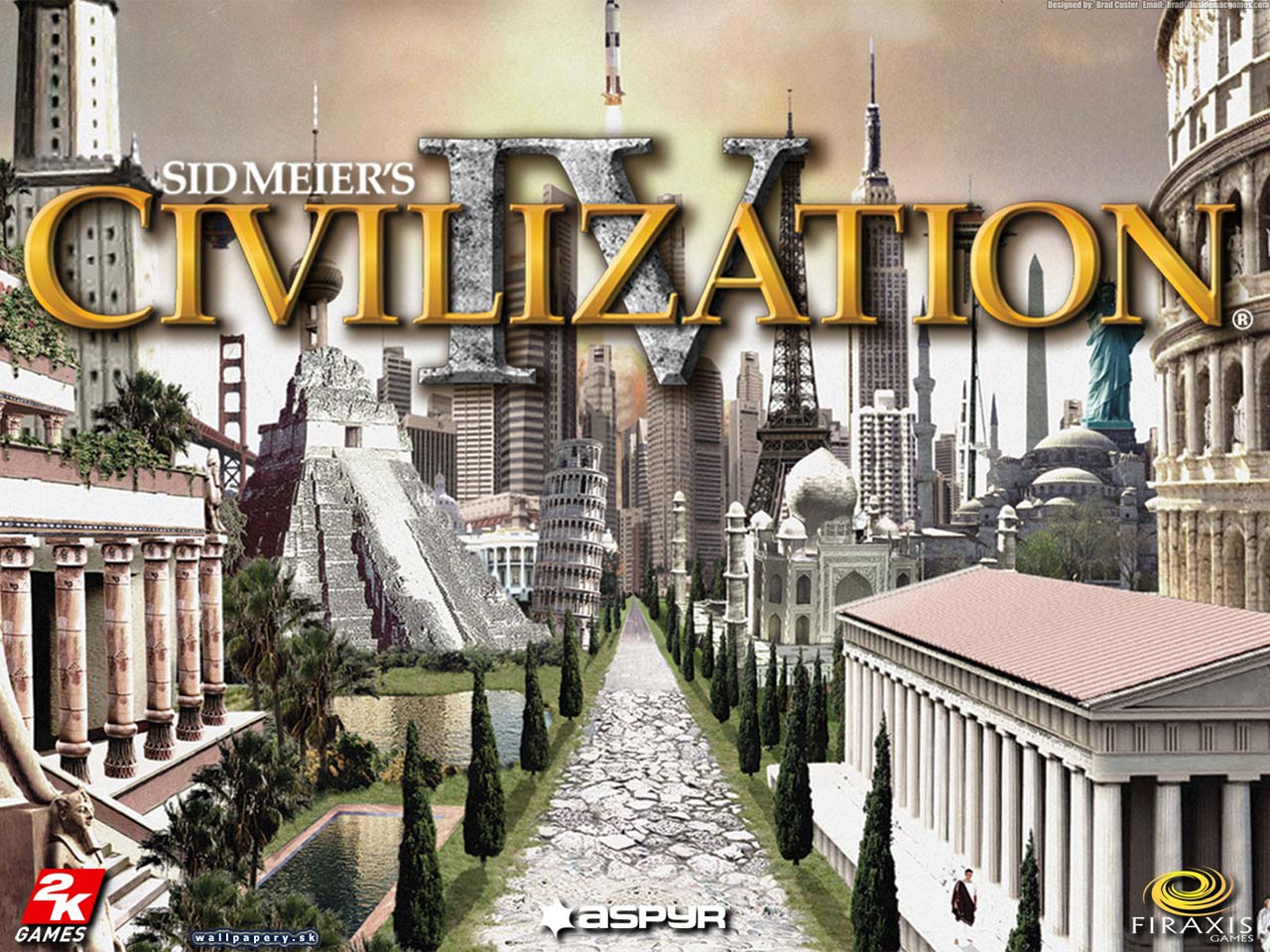Bringing that feeling of “One more turn” into History Class
Education Games Research had an account of a Canadian teacher, Dr. Shawn Graham, who employed a unique approach in using games in education. The teacher set up a scenario in the popular simulation game Civilization IV to allow students to become one of the factions in Ancient Rome’s “Year of the Four Emperors” that took place in 69 A.D. after the assassination of Nero. During that year, four successive Roman generals, Galba, Otho, Vitellius, and Vespasian in rapid succession marched on Rome with their legions and seized power.
Civilization is a 3D simulation that places the player in charge of a civilization, such as Rome, Egypt or Greece. Games include simulations of the rise of a civilization from the very beginning and more limited scenarios, which can be designed by the player, that runs a period in the life of the civilization. Players can compete against each other or against other civilizations run by the game’s artificial intelligence system. There are elements of war fighting, diplomacy, economic development, and technology involved in the game play.
Students were offered the choice between writing an essay or playing the scenario. This caused some confusion because expectations for an essay were known, running a game simulation – not so much. As Dr. Graham reported:
“Play a game, or write an essay? I figured it would be a no-brainer. Now of course, not everyone had a copy of the game, and I couldn’t force them to buy it. There were a number though who did have a copy, and they gave it a try. The response was…. well, you know that odd uncle you have, who turns up at family gatherings, and every one tries to humor him without causing too much disruption? It was something like that. “I enjoyed it Sir, it really made me think differently about what was going on in AD69… but if it’s alright with you, I’d rather write an essay” was a typical response.”

In other words, Graham realized the class’ problem was due to the students not having a clear understanding how they would be assessed by playing the game. An uncertainty of grade and assessment factors makes the prospect of playing a little fearful for some.
Expectations for essays were known factors; expectations for playing through a scenario in Civilization were not. For future endeavors, Graham plans to spell out expectations for the videogame option much more explicitly.With further refinement, the idea of learning Roman history using a gaming system has its merits and should be a useful teaching tool.
And now that Civilization has spanned a fifth sequel and is now heading towards space in its latest sequel…a refinement of this idea could be adapted to any point in time, present or future.








